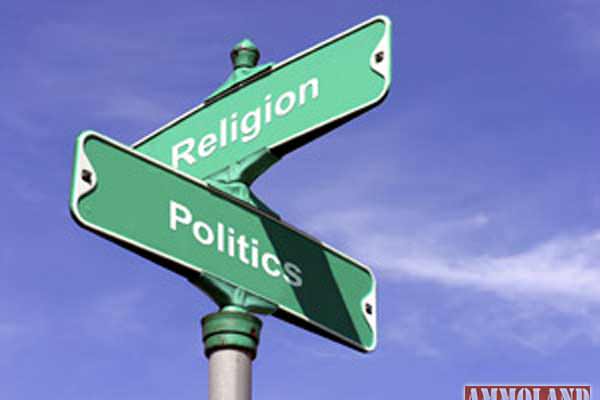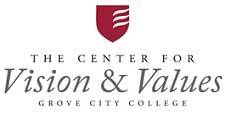by Brad Tupi


Grove City, PA –-(Ammoland.com)- National exit polling from Congressional races tells us some interesting things about the role of religious values in the 2014 midterm elections.
It also sends a signal to the Republican Party about its supporters now and in the future.
The most obvious piece of information about religious voters is that a majority of them voted for Republican candidates a few weeks ago. Of voters who identified themselves as Protestants, 61 percent voted Republican and 37 percent Democrat. Catholics voted 54 percent Republican, 45 percent Democrat. Conversely, those who identified their religion as “None” voted 69 percent Democrat and 29 percent Republican.
The correlation between religious faith and voting Republican was even more pronounced among certain subgroups. White Protestants voted 72 percent Republican and 26 percent Democrat; white Catholics voted 60 percent Republican and 38 percent Democrat. White voters who identified themselves as evangelical/born-again Christians made up 26 percent of the electorate and voted 78 percent Republican, 20 percent Democrat.
It should be noted that voter turnout was abysmal, about 36 percent. This is the lowest turnout since World War II.
The more often the voter attends church, the more likely the voter is to vote Republican. Voters who attend church weekly broke Republican 58 percent to 40 percent; those who attend occasionally leaned 52 percent to 46 percent Republican. Protestants who attend religious services weekly voted Republican 67 percent and Democrat 31 percent. Catholics who celebrate Mass weekly voted Republican 55 percent and Democrat 43 percent. On the other hand, those who never attend church services voted Democrat by a 62 percent to 36 percent margin. The Democratic Party is the home of those with a secular worldview.
The exit polling asked questions on two moral issues: same-sex marriage and abortion. In response to the question, “Should your state recognize same-sex marriage?” 48 percent of voters said yes and 48 percent said no. Among the yes votes, 67 percent were Democrats and 31 percent were Republicans. The no votes strongly tilted Republican, 72 percent to 27 percent. The exit polling confirmed that Democrat voters are at least twice as likely to have a positive opinion on same-sex marriage.
On abortion, exit polls showed that 52 percent of voters thought abortion should be legal. Of these voters, 65 percent were Democrat and 33 percent Republican. Of those voters who said abortion should be illegal, 73 percent were Republicans and 25 percent were Democrats. These results conform to the stated platform positions of the two major parties.
Among this data, given the clear teachings of the Catholic Church against homosexual conduct and abortion, one wonders why the split in the overall Catholic vote only favors Republicans by nine points, 54 percent to 45 percent. One reason is that 2014 voters identified the economy as the most important issue, and that same-sex marriage and abortion played only minor roles in the campaigns. The candidate who tried to make abortion rights a centerpiece of his campaign, Democrat Mark Udall, lost in the Colorado senate campaign to pro-life candidate Cory Gardner. Gardner blunted the “war on women” attack not by speaking out against abortion, but by calling for contraceptives to be available over-the-counter. Gardner’s approach typified an election cycle where Republicans spoke very cautiously about moral issues.
A number of atheists sought political office in 2014; all were Democrats. Daniel Moran lost a race for the Texas House of Representatives, James Woods lost a Congressional race in Arizona, and atheist Juan Mendez won reelection to the Arizona legislature.

In the state of Washington, state senate candidate Mark Miloscia ran as a pro-life Republican after serving as a Democrat state representative for 14 years. Miloscia, a Catholic, was attacked in a Democrat political ad that depicted him wearing a papal mitre, praying the rosary, and taking orders from the Vatican. He won his race by 13 points.
The Democratic Party continues to advocate abortion, same-sex marriage, and secularism. It continues to be the political home of Planned Parenthood, the ACLU, and the Freedom from Religion Foundation. As a result, it continues to push religiously faithful voters to the GOP.
Two questions face religious voters going forward:
First, will the GOP maintain social as well as fiscal conservatism so as to give religious voters a lasting home? Substantial numbers of Republicans polled in 2014 favored abortion and same-sex marriage, and the eastern establishment of the party deliberately downplays moral issues.
Second, can a Republican Party platform reflecting the traditional views of Christian conservatives attract enough young and independent voters to win elections with a higher turnout than the 2014 mid-term?
–Brad Tupi is an attorney in Pittsburgh, Pa. He has spoken at Grove City College’s 2008 and 2014 Vision and Values Conference on the subject of Religious Freedom and the First Amendment, and has published in the Grove City Journal of Law and Public Policy.
